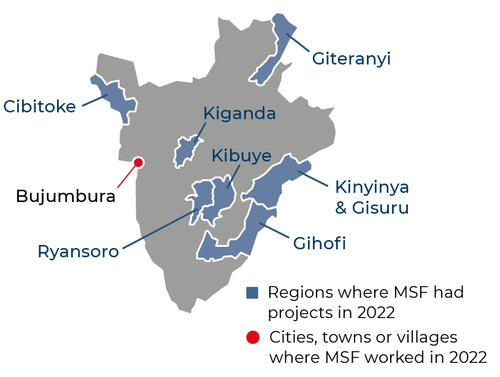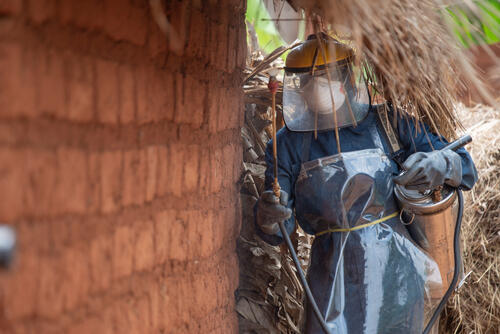After supporting L’Arche Kigobe, a private facility in which we provided care for victims of trauma in Bujumbura, for more than five years, we withdrew from the facility in February 2021 and entered into a partnership with Prince Régent Charles Hospital in order to transfer our skills there.
At Prince Régent Charles Hospital, we reinforce the treatment of people with moderate and severe trauma by providing medical training, donations and financial support.
Our teams also undertake initiatives to help prevent malaria, including through large-scale indoor residual spraying (IRS) campaigns, in areas such as Ryanzoro and Kinyinya.
Our activities in 2022 in Burundi
Data and information from the International Activity Report 2022.
164
164
€4.7 M
4.7M
1992
1992


1,478,200
1,478,2
571,000
571,

Cholera epidemic within displaced near Bujumbura

After attacks on UN staff, MSF suspends projects in Ruhigi province of Burundi

Number of severely malnourished doubles in four weeks in Karuzi, Burundi

MSF Background Document on Karuzi, Burundi

Malaria epidemic and food crisis combine to create a very worrying situation in northern Burundi





